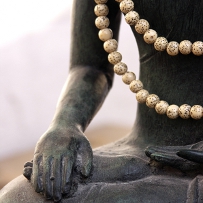|
|
|
|
|
 |

|

|

|
The greatest gift is the
gift of the teachings
|
|

|
| |
|
Dharma Talks
given at Spirit Rock Meditation Center
|
2013-02-23
Cultivating Wise Speech
62:30
|
|
Donald Rothberg
|
|
|
This is the first segment of a daylong on cultivating wise or "right" speech, including when there are difficult speech situations. There is a general introduction to speech and communication practice and an overview of the basic guidelines for speech given by the Buddha.
|
|
Spirit Rock Meditation Center
|
|
|
|
|
|
|
|
|